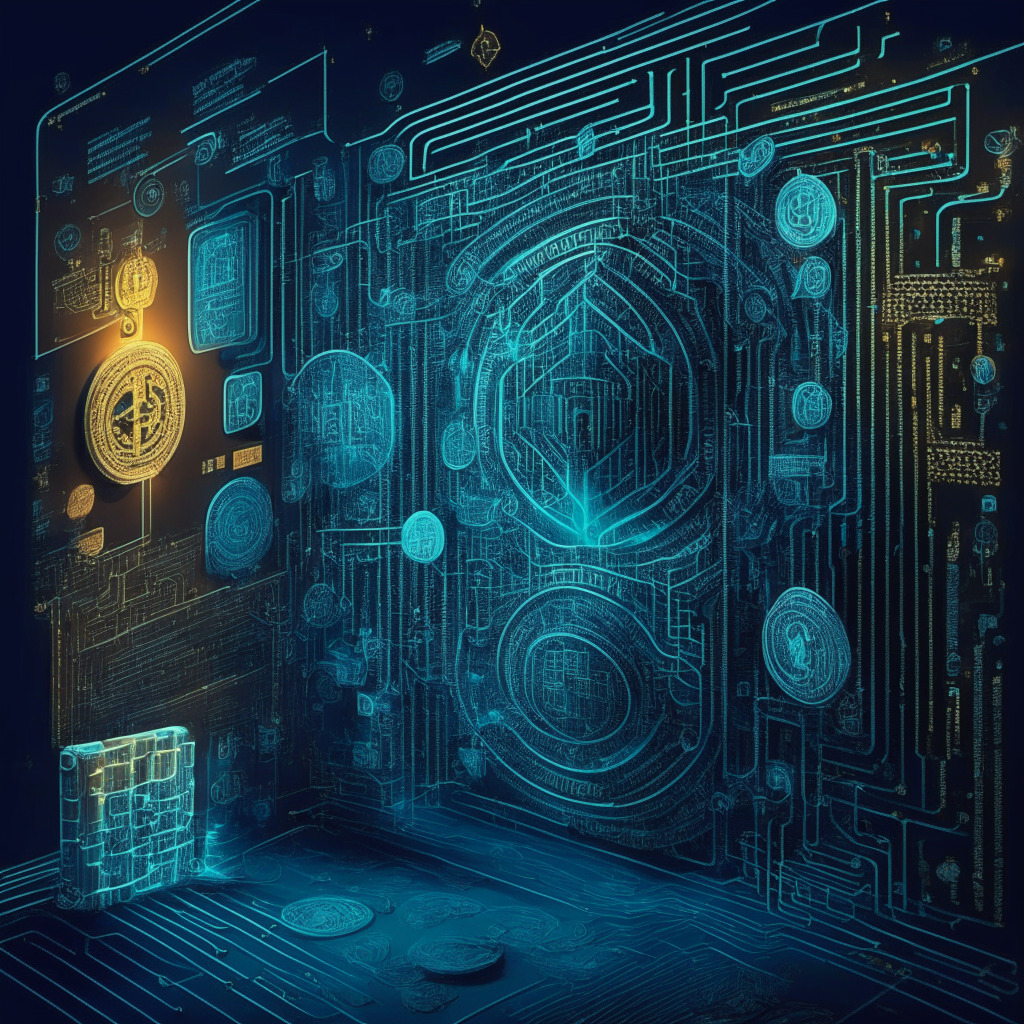The world of tokenization is rapidly expanding as more financial institutions and large companies integrate digital assets into their operations. One such example is the recent collaboration between Swiss digital asset infrastructure provider Taurus and the Ethereum scaling network, Polygon. This partnership not only supports staking and decentralized finance (DeFi), but also demonstrates the growing traction of blockchain technology within mainstream finance.
Tokenization allows assets to be represented as tradeable units in a digital format, which can bring more efficiency and cost-effectiveness to various industries. Overall, it’s an attractive proposition for traditional financial institutions, who are beginning to embrace blockchain technology more openly. An exciting example of this occurred last November when JPMorgan executed live trades of the yen and the Singapore dollar using tokenized versions on Polygon. Furthermore, Tyrone Lobban, head of JPMorgan’s digital assets platform Onyx, referred to tokenization as the “killer app” for traditional finance back in April.
Interestingly, an increasing number of tier 1 financial institutions are entering the blockchain space and looking for ways to manage tokenized securities. These institutions are seeking blockchain-agnostic and token-agnostic infrastructure, which has the potential to revolutionize the financial landscape. As an indication of this growing trend, in April, Bank of America reported that tokenized gold markets had surpassed $1 billion the previous month.
The integration of Polygon into Taurus’ platform offers several advantages to its users, primarily due to Polygon’s capabilities as a layer 2 blockchain. By processing transactions at a higher speed and reduced cost than the main Ethereum network, Polygon delivers greater overall efficiency. Moreover, Polygon aims to expand beyond Ethereum connectivity with its vision of becoming an “internet of blockchains” that can bring together any Ethereum-compatible networks.
However, the widespread adoption of tokenization does not come without concerns. There are potential regulatory issues, as well as questions about the security and scalability of the technology. With numerous financial institutions exploring blockchain and tokenization, more attention will be placed on ensuring that these new systems are secure and compliant with existing regulations.
In conclusion, the partnership between Taurus and Polygon exemplifies the increasing level of interest and integration of blockchain technology, tokenization, and digital assets within mainstream finance. While this development holds the promise of more efficient and cost-effective asset management solutions, it is also crucial to address the concerns surrounding security, scalability, and compliance. The blockchain landscape will undoubtedly continue to evolve and grow, attracting an ever-expanding list of players from various sectors who will contribute to shaping the future of finance.
Source: Coindesk




